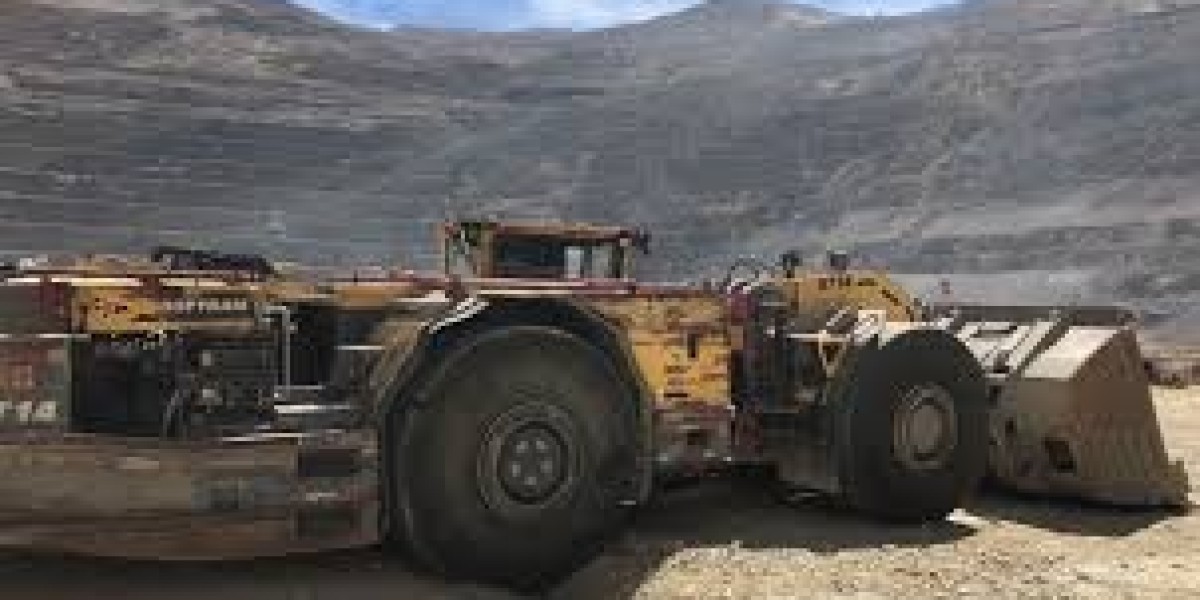Proper maintenance keeps machinery in good condition, makes it last longer, and ensures that workers stay safe. Without good care, machines can break down at the wrong time, cause delays, and increase costs. In this article, we will discuss simple but effective maintenance tips that every contractor, operator, and team should follow.
Why Maintenance of Underground Machinery Is Important
Before we go into the tips, let us understand why maintenance matters so much.
Safety of Workers
Underground projects already have many risks. A sudden machine failure can lead to accidents. Well-maintained machinery reduces this risk.Longer Life of Equipment
Machines are expensive. Regular maintenance helps protect that investment by making the machinery last for years.Fewer Breakdowns
Preventive care reduces unexpected failures. This means less downtime and fewer costly repairs.Better Performance
Clean, serviced, and well-lubricated machines work more smoothly and finish jobs faster.
Key Maintenance Tips for Underground Machinery
1. Perform Regular Inspections
The first step to keeping underground machinery in good condition is regular inspection. Operators should check machines daily before starting work. This includes:
Looking for leaks of oil, coolant, or fuel
Checking the condition of tires or tracks
Examining cables, hoses, and connectors
Testing lights, brakes, and safety alarms
Catching small problems early prevents them from becoming big ones later.
2. Clean the Machinery Properly
Underground conditions produce dust, mud, and moisture that stick to machines. Over time, this dirt can damage moving parts, block filters, or cause overheating. Cleaning machinery regularly helps prevent these problems.
Wash off mud and dust after each shift
Keep air filters clean
Make sure cooling systems are free of dirt
A clean machine is not only easier to maintain but also safer to use.
3. Lubricate Moving Parts
Underground machinery has many moving parts that rub against each other. Without proper lubrication, these parts can wear out quickly. Applying the right grease and oil reduces friction and makes the machine run smoothly.
Follow the manufacturer’s lubrication schedule
Use the correct type of grease for each part
Do not over-lubricate, as this can attract dust
Good lubrication is one of the simplest but most powerful maintenance steps.
4. Monitor Fluids and Oils
Fluids are like the lifeblood of underground machinery. Engine oil, hydraulic fluid, and coolant must always be at the correct levels. Dirty or low fluids can cause serious damage.
Check oil and coolant levels daily
Replace fluids as recommended
Look for signs of contamination, such as milky or dark-colored oil
Changing fluids on time prevents engine and hydraulic failures.
5. Replace Worn-Out Parts Quickly
Every machine part has a working life. Parts like filters, seals, belts, and hoses wear out over time. If not replaced in time, they can cause bigger breakdowns.
Keep spare parts ready
Change filters regularly
Replace cracked hoses or belts immediately
Quick replacement saves money and keeps machines in service longer.
6. Pay Attention to Electrical Systems
Underground machinery depends on strong electrical systems for lights, alarms, and controls. Moisture and dust can damage wires and switches if not checked.
Inspect wiring for cracks or loose connections
Make sure all lights and alarms work properly
Protect electrical parts from water and dust
Good electrical systems keep both the machine and the workers safe.
7. Train Operators Properly
Even the best-maintained machine can fail if the operator does not use it correctly. Training operators is part of good maintenance.
Teach them to start and shut down machines the right way
Show them how to spot warning signs like smoke, noise, or vibrations
Encourage reporting problems immediately
Skilled operators reduce wear and tear and keep underground machinery in better condition.
8. Keep Detailed Maintenance Records
Maintaining underground machinery is easier when records are kept. A proper logbook or digital record should include:
Dates of inspections and services
Parts replaced
Fluid changes
Problems reported and fixed
With these records, it is easier to plan future maintenance and avoid repeating mistakes.
9. Store Machinery Safely When Not in Use
When machinery is not working, storage is also part of maintenance. Underground environments can damage idle machines.
Park machines in a clean, dry area
Cover exposed parts if possible
Disconnect batteries for long storage periods
Safe storage prevents rust and keeps machinery ready for the next project.
10. Follow Manufacturer Guidelines
Every piece of underground machinery comes with a user manual. These guidelines are made by experts who know the machine best.
Follow service intervals
Use recommended fluids and lubricants
Never ignore warning signs
By following these instructions, contractors can make sure the machinery performs at its best.
Common Problems in Underground Machinery and How Maintenance Helps
Overheating
Cause: Blocked cooling systems or low coolant
Solution: Clean radiators and check fluids regularly
Hydraulic Leaks
Cause: Damaged hoses or seals
Solution: Inspect hoses often and replace worn parts
Electrical Failures
Cause: Moisture or dust entering wiring
Solution: Keep systems dry and check wiring regularly
Worn Tracks or Tires
Cause: Rough underground surfaces
Solution: Inspect daily and replace when worn
Engine Trouble
Cause: Dirty oil or poor maintenance
Solution: Change oil and filters on time
All of these problems can be avoided or reduced with regular care.
Benefits of Proper Maintenance for Contractors
Contractors who take good care of their underground machinery enjoy many advantages:
Fewer project delays
Lower repair costs
Longer equipment life
Safer job sites
Better reputation for reliability
Maintenance is not just about machines. It is about building trust with clients and delivering projects on time.
Conclusion
Underground projects are tough, and so is the machinery that makes them possible. But even the strongest machines need proper care. Regular inspections, cleaning, lubrication, fluid checks, and timely part replacements all play a role in keeping underground machinery in good condition.







